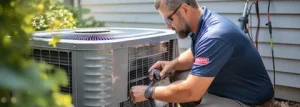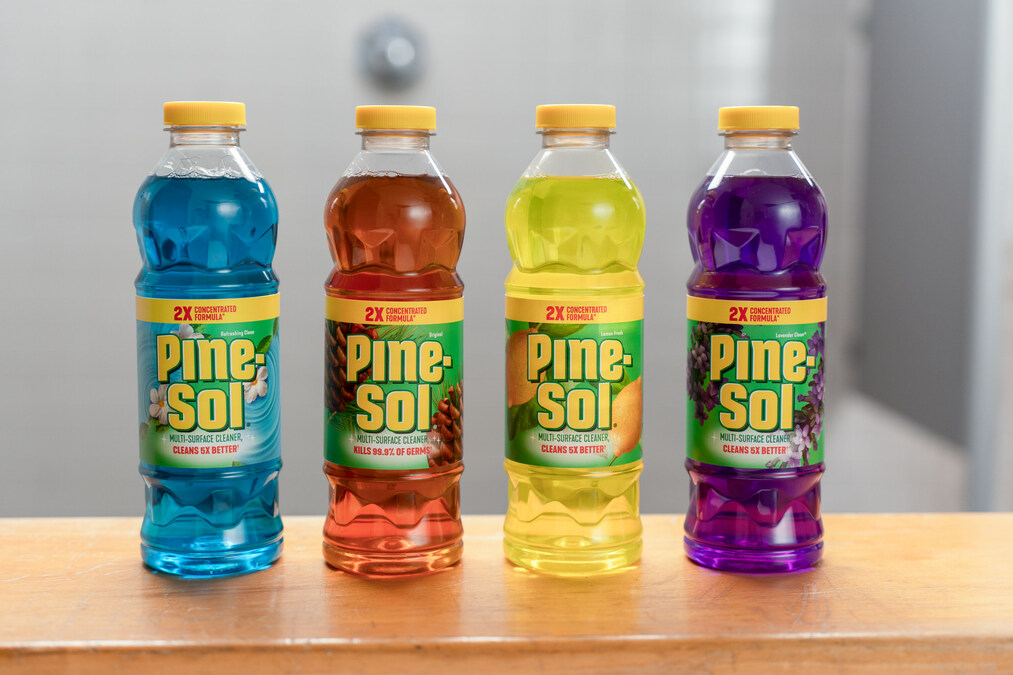Home Garden
From Balconies to Backyards: How to Grow Fresh Food Anywhere

Are you tired of making endless trips to the grocery store for fresh produce? Do you dream of having your own bountiful garden but think it’s impossible because you live in a small apartment or don’t have a backyard? Think again! With some creativity and determination, anyone can grow their own food no matter where they live. Not only is growing your own food rewarding and satisfying, but it’s also environmentally friendly and can save you money in the long run. In this blog post, we’ll share tips on how to get started growing your own food, what crops are best suited for small spaces, and how to ensure success with your new gardening venture. Let’s dig in!
The Benefits of Growing Your Own Food
Growing your own food has numerous benefits that extend beyond just having fresh produce at your fingertips. For starters, it’s an excellent way to connect with nature and learn more about the environment around us. When you grow your own food, you become more aware of the growing process and can appreciate the hard work that goes into producing each crop.
Additionally, growing your own food is a great way to promote sustainability and reduce your carbon footprint. By avoiding store-bought produce that requires transportation from faraway places, you’re helping to minimize greenhouse gas emissions while also supporting local agriculture.
Another significant benefit of growing your own food is the control it gives you over what goes into your body. You have complete authority over what fertilizers or pesticides are used (or not used) on your crops, ensuring that everything you consume is free from harmful chemicals.
Gardening can be a fantastic stress-reliever and mood-booster. There’s something peaceful about being out in nature and getting our hands dirty while tending to our plants – it’s almost meditative! Plus, there’s nothing quite like harvesting fresh veggies straight from the garden for dinner – talk about a satisfying experience!
How to Get Started Growing Your Own Food
Are you ready to start growing your own food but feeling overwhelmed? Don’t worry, getting started doesn’t have to be complicated! Here are some simple steps to help you get started on your journey towards fresh and delicious home-grown produce.
The first step is determining what kind of space you have available. Whether it’s a balcony, backyard or even just a windowsill, there are plenty of options for growing in any sized space. You can also consider joining a community garden if you don’t have access to your own outdoor area.
Once you know where you’ll be planting, the next step is deciding what crops will work best for your location and climate. Do some research on what grows well in your area and make sure to choose plants that will thrive under those conditions.
Next up is choosing the right containers or raised beds for your plants. Make sure they’re large enough for the plant’s root system and provide adequate drainage.
Now it’s time to grab some soil! Look for high-quality potting mix or compost that will provide nutrients for your crops throughout their growth cycle.
Invest in some basic gardening tools like gloves, trowels and watering cans. These essentials will come in handy as you tend to your new garden.
With these simple steps, anyone can get started growing their own food no matter how big or small their space may be!
What You Can Grow in Small Spaces
Living in an apartment or having a small backyard doesn’t mean you can’t grow your own fresh produce. With some creativity and the right tools, you can grow a variety of fruits, vegetables, and herbs in even the smallest of spaces.
One option for small space gardening is container gardening. You can use pots, buckets, or even recycled containers to grow plants such as tomatoes, peppers, and leafy greens like lettuce and spinach. These plants don’t require much space but do need plenty of sunlight.
Another great way to maximize limited space is vertical gardening. This involves growing plants on walls or trellises to save floor space while still providing enough room for growth. Plants like strawberries and cucumbers are perfect candidates for this type of gardening.
Herbs are also ideal for small spaces because they’re easy to care for and add flavor to any meal. They can be grown indoors on windowsills or outdoors in window boxes or hanging baskets.
Microgreens are another option that’s gaining popularity among urban gardeners since they only require minimal space yet pack a nutritional punch with their high vitamin content.
No matter how little outdoor area you have available; there are always ways to cultivate something green and healthy!
10 Easy-to-Grow Foods for Beginners
If you’re new to gardening, it’s important to start with easy-to-grow foods that are also delicious and nutritious. Here are ten great options for beginners.
1. Salad Greens – Leafy greens like lettuce, spinach, and arugula are quick-growing and perfect for small spaces.
2. Tomatoes – With a little bit of sun and water, tomatoes can thrive in containers or garden beds.
3. Herbs – Basil, parsley, chives, and other herbs add flavor to your meals while also being low-maintenance plants to grow.
4. Radishes – These fast-growing root vegetables can be harvested within weeks of planting.
5. Peppers – Whether you prefer sweet bell peppers or spicy jalapenos, peppers are a versatile addition to any meal.
6. Carrots – Another root vegetable that is easy to grow in containers or small plots of land.
7. Strawberries – A delicious fruit that can be grown in hanging baskets or pots on your balcony or patio
8. Green Beans- Perfect for trellises they will provide an abundance of fresh beans all summer long!
9.
Cucumbers- Grown vertically cucumbers take up minimal space leaving plenty room for other veggies!
10.
Snap peas- Great eaten raw as a snack! They too can be grown vertically allowing you more space.
No matter what type of food you choose to grow at home remember it’s important not only because it helps the environment but there’s nothing quite like eating something straight from the ground!
Tips for Successfully Growing Your Own Food
Growing your own food can be both rewarding and challenging, especially if you’re new to gardening. Here are some tips to help you successfully grow your own fresh produce:
Firstly, pay attention to the soil. Good soil is essential for healthy plant growth. Test the pH levels of your soil and add organic matter like compost or manure when necessary.
Secondly, make sure you’re planting at the right time of year for each crop. Different plants have different growing seasons and requirements, so research before planting.
Thirdly, provide adequate water and sunlight. Most vegetables need at least six hours of direct sunlight per day, while others may require more shade.
Fourthly, regularly check for pests and diseases that could harm your crops. Use natural pesticides like neem oil or companion planting techniques to keep harmful insects away.
Don’t be afraid to experiment! Gardening is all about trial-and-error; try different varieties of vegetables and different techniques until you find what works best for you.
By following these tips and putting in a little effort each day, anyone can enjoy the satisfaction of growing their own fresh fruits and veggies – whether they have a backyard garden or just a few pots on their balcony!
Conclusion
Growing your own food can be a rewarding and fulfilling experience, no matter where you live. From balconies to backyards, there are many ways to grow fresh food anywhere. Not only does it provide access to healthier and fresher produce, but it also helps reduce your environmental impact and saves money in the long run.
Starting small with easy-to-grow foods such as herbs or leafy greens can help build confidence and experience before moving on to more challenging crops. By following some basic tips for successful gardening like providing enough sunlight, water, nutrients, and space for plants to grow properly – anyone can become an expert gardener.
Whether you have limited outdoor space or not, there are plenty of options available for growing your own fresh produce at home. So why not give it a try? You might just discover a newfound love for gardening while enjoying all the benefits that come with growing your own food!
Home Garden
Home with Biophilic Design: The Beauty of Crazy Paving Tiles

Introduction
Biophilic design is all about bringing the calming feel of nature into your home. And guess what pairs perfectly with this style? Natural stone crazy paving tiles!
Their organic shapes, soothing shades and intricate patterns help create free flowing and elegant spaces, be it indoors or outdoors. Whether you are styling a backyard, pool area or garden pathway, crazy paving makes everything feel more connected to nature.
If there is one thing Aussies love, it’s being outside and having fun. Even when we are indoors, we still want a breezy, nature-inspired vibe where sunlight is pouring in, greenery everywhere and materials making the space feel warm and real.
That is also the reason why biophilic design always trends amongst homeowners and designers. It cent per cent makes our homes feel closer to nature. And when you pair biophilic design with crazy paving tiles, the beauty extremely enhances.

These free form stones have been trending in all kinds of landscapes lately, be it your backyards, patios, pool edges and even living rooms. They slot right into biophilic design because they feel organic, imperfect in the best way and make spaces look more unique and connected.
And since they are often made from natural stone like Travertine, Limestone, Marble or Sandstone, they pair beautifully with Australian architecture and landscaping styles.
What is Biophilic Design?
Biophilic design is mainly about strengthening our connection to nature. Natural light, earthy materials, different textures, flowing shapes and anything that makes your home feel peaceful and alive becomes a major part of this design style.
Instead of sharp lines and shiny surfaces, biophilic design leans into softer edges, calming colors and textures that remind you of the outdoors. In Australia, where outdoor living is basically part of our personality, this design style fits perfectly.
What is Crazy Paving?
Crazy paving tiles are pieces of natural stones laid in a random, freestyle pattern. No two stones look the same and that’s the beauty of it. The uneven shapes and varied shades give your space a unique yet timeless look.
We also call crazy pavers as flagstone pavers. They break into irregular shapes and have lovely color variations. Being made from natural stones, they are highly durable, weatherproof and last for ages without any frequent wear and tear. From rustic to contemporary coastal, they easily adapt to different styles.
Why Crazy Paving Tiles Works So Well in Biophilic Design
Biophilic design celebrates nature’s randomness and that is exactly what crazy paving brings to the table. Nothing feels overly structured or too perfect. The stones sit together organically, much like stones in a forest or pebbles on a natural path.
Here are why crazy paving tiles and biophilic design are basically best pair –
- The irregular shapes mimic natural landscapes.
- The shades feel soothing and earthy.
- The tonal variations add warmth and depth.
- It works beautifully with native plants, wooden accents, water features and soft outdoor lighting.
Whether you are going for a modern, coastal or Mediterranean-inspired home, crazy paving fits right in with biophilic design without trying too hard.
Design Benefits of Using Crazy Paving Tiles for Biophilic Spaces
-
NaturalShades and Patterns
As crazy paving tiles are made from natural stones, they often come in warm and soft shades. The soft colour palette makes spaces feel calmer and more cohesive. When the sunlight spreads on the stone, the surface heavenly catches the light in all the right places.
-
Organic, Free-Flowing Layouts
Because each stone piece is unique, no two areas ever look alike. The layout feels relaxed and effortless like something you would see in an old European courtyard. This randomness reduces visual rigidity and adds softness to your design.
-
Creates Seamless Indoor-Outdoor Flow
Crazy paving tiles are a beautiful way to connect indoor and outdoor zones. When used in alfresco areas, sunrooms or transition spaces, it blurs the lines and makes the entire area feel like one big, open environment. This is exactly what biophilic design wants.
Where to Use Crazy Paving Tiles in a Biophilic-Focused Home
-
Patiosand Alfresco Areas
These are the easiest spots to create a biophilic theme. You can add outdoor seating, potted greenery and warm lighting and you have got yourself a cosy forest like garden.
-
Pool Surrounds
Crazy paving tiles stay cool underfoot and look beautiful around water. The irregular layout adds a laid-back resort vibe that many Aussie homes love.
-
Garden Pathways
Nothing feels more natural than a well-designed natural stone pathway through your garden. Flagstone pavers are perfect for this because they look like something you would find in nature.
-
Entryways and Sunrooms
You can use crazy paving tiles in indoor transition spaces to create a cohesive, earthy feel the moment you walk in.
Conclusion
If you are looking to bring more nature, warmth and calm into your home, crazy paving in a biophilic home design is one of the beautiful ways to do it. The organic shapes, earthy shades and natural patterns make crazy paving tiles perfect for biophilic design, especially in Australian homes where indoor-outdoor living is a way of life.
Development
Reliable AC Repair Services in Gurugram: Choose HomOfix

Gurugram is one of India’s fastest-growing cities, known for its modern homes, corporate offices, and busy lifestyle. In such a fast-paced environment, air conditioners are no longer just a luxury—they are a necessity. From scorching summers to humid rainy days, ACs play a major role in keeping indoor spaces comfortable and productive.
But like every machine, ACs also face issues such as low cooling, water leakage, strange noises, gas leakage, or electrical faults. When these problems appear, you need a service provider who is quick, skilled, trustworthy, and reasonably priced. This is why thousands of people choose HomOfix Company, a leading and dependable provider of AC repair service in Gurugram.

HomOfix has built a strong reputation for delivering high-quality repairs, transparent pricing, and same-day services across Gurugram’s residential and commercial areas. Whether you own a split AC at home or manage a large central AC system in your office, HomOfix offers complete solutions under one roof.
HomOfix Is the Best Choice for AC Repair Service
1. Experienced & Certified AC Technicians
Your AC is a sensitive and expensive appliance, so it must be handled by experts. HomOfix’s team includes certified, experienced, and background-verified technicians trained to repair all AC brands—such as LG, Daikin, Voltas, Hitachi, Samsung, Carrier, Whirlpool, Panasonic, and more.
They are skilled in diagnosing problems quickly and providing accurate, long-lasting solutions without unnecessary part replacements.
2. Same-Day Service Across Gurugram
In the heat of Gurugram, waiting days for an AC repair can be unbearable. HomOfix understands this, which is why they provide same-day AC repair service for most locations. Whether you live in DLF, Sohna Road, Golf Course Road, MG Road, or New Gurugram, technicians reach you quickly and resolve issues on the spot.
3. Transparent & Budget-Friendly Pricing
One of the biggest concerns people have is overcharging or hidden costs. HomOfix follows a clear and transparent pricing policy. You get an upfront estimate after diagnosis, and technicians explain every step before starting the repair.
You only pay for the issue that needs fixing—no unnecessary changes, no hidden charges.
4. Repair Services for All Types of ACs
HomOfix offers complete repair and service solutions for every AC type in Gurugram:
- Split AC
- Window AC
- Inverter AC
- Cassette AC
- Central AC Units
- Ductable AC Systems
From cooling problems to advanced electrical faults, the experts are trained to handle everything.
5. Genuine Spare Parts & Long-Lasting Service
If your AC requires part replacement, HomOfix provides only brand-approved, genuine spare parts. This ensures durability, improved performance, and long-term reliability. Cheap or duplicate parts may cost less initially but cause bigger damage later—HomOfix avoids such risks completely.
6. Hygienic & Eco-Friendly Cleaning Methods
AC servicing is essential not only for cooling but also for your health. Dust-filled filters and coils can cause allergies, poor air quality, and high electricity bills. HomOfix technicians use safe, eco-friendly cleaning methods to ensure your AC delivers fresh and healthy airflow.
Common AC Problems We Repair in Gurugram
ACs can develop many issues over time due to weather conditions, dust accumulation, or lack of regular servicing. HomOfix technicians fix all common and complex AC problems, including:
1. AC Not Cooling Properly
Low refrigerant, dirty filters, blocked coils, or compressor faults can reduce cooling. Technicians identify the root cause and restore efficient cooling quickly.
2. Water Leakage from Indoor Unit
Leakage occurs when the drain line is blocked or the coil is dirty. HomOfix cleans the drain, fixes the airflow, and stops leakage permanently.
3. AC Making Noise
Rattling, buzzing, or banging noises indicate fan, motor, or compressor issues. Experts AC repair or replace faulty components before the damage spreads.
4. Bad Smell from AC
Mold, bacteria, or dirt buildup in the indoor unit causes foul odors. Deep cleaning and antibacterial treatment solve the problem effectively.
5. Gas Leakage / Low Gas
Gas leakage is a major cause of weak cooling. HomOfix provides professional gas leak detection and refills R22, R410A, and R32 refrigerants with proper safety measures.
6. High Electricity Consumption
An unserviced AC consumes more power. HomOfix technicians clean coils, filters, and check electrical health to restore energy efficiency.
AC Repair Offered by HomOfix Company in Gurugram
1. AC Repair
Complete repair service for cooling issues, electrical faults, sensor problems, PCB issues, compressor faults, and more.
2. AC Repair / Deep Cleaning
Regular service includes:
-
Coil cleaning
-
Filter washing
-
Outdoor unit cleaning
-
Drain line flush
-
Complete performance check
This improves cooling, lowers power bills, and extends AC life.
3. AC Gas Refilling
Safe and accurate gas refilling with leak repair to restore cooling efficiency.
4. AC Installation & Uninstallation
Technicians handle:
-
Proper mounting
-
Vacuuming
-
Pipe fitting
-
Leak testing
-
Electrical setup
Safe removal and shifting of AC units is also provided.
Why Residents & Businesses in Gurugram Prefer HomOfix
-
Quick response time
-
Trained and verified technicians
-
Affordable pricing
-
Advanced diagnostic tools
-
Guaranteed service satisfaction
-
Clean and professional work
-
Full coverage across Gurugram
This professionalism makes HomOfix one of the most trusted names in the AC Repair industry.
Conclusion
If your AC is not cooling or showing any signs of malfunction, don’t delay the repair—small issues can turn into big damage. HomOfix Company provides the most reliable, affordable, and same-day AC repair service in Gurugram, delivering high-quality solutions for every AC brand and model.
With expert technicians, genuine spare parts, transparent pricing, and fast service, HomOfix ensures your comfort is never compromised.
Home Garden
Say Goodbye to Pine Sol and Make Your Own Natural

Introduction
Many people rely on commercial cleaners like Pine Sol to keep their homes sparkling clean. While these products work well, they often contain harsh chemicals that can irritate your skin, damage surfaces, and harm the environment. Making your own natural cleaner at home is safer, cost-effective, and surprisingly easy. With a few simple ingredients, you can create a solution that cleans just as well, smells fresh, and keeps your home healthy. This article will guide you through easy DIY recipes and tips to replace Pine Sol naturally.
Why Choose Natural Cleaners
Natural cleaners are made from ingredients that are safe, non-toxic, and environmentally friendly. Common components include vinegar, baking soda, essential oils, and lemon juice. Unlike chemical-based cleaners, natural alternatives reduce the risk of allergies, respiratory issues, and chemical exposure. They are also biodegradable, meaning they won’t pollute water systems or harm wildlife. Choosing natural cleaners is not only better for your family but also contributes to a cleaner, healthier planet.
Benefits of Making Your Own Cleaner
Making your own cleaner at home has several advantages. First, it saves money. Ingredients like vinegar, baking soda, and lemon are inexpensive and often already in your kitchen. Second, it allows customization. You can add your favorite essential oils for scent or adjust the strength of the solution based on the cleaning task. Third, it eliminates harsh chemicals, making your home safer for children and pets. Finally, it reduces plastic waste because you can reuse spray bottles and containers multiple times.
Essential Ingredients for DIY Natural Cleaners
Before making your own cleaner, it helps to know which ingredients are most effective:
- Vinegar: A natural disinfectant that removes grease and stains.
- Baking Soda: Excellent for scrubbing and deodorizing surfaces.
- Lemon Juice: Contains citric acid that brightens surfaces and leaves a fresh scent.
- Essential Oils:Oils like tea tree, lavender, or eucalyptus add antibacterial properties and pleasant aromas.
- Castile Soap: A gentle, plant-based soap perfect for general cleaning.
These ingredients can be combined in various ways to create a versatile cleaner for multiple surfaces.
Simple All-Purpose Cleaner Recipe
Here’s an easy all-purpose cleaner you can make in minutes:
- 1 cup of water
- 1 cup of white vinegar
- 10 drops of lemon or tea tree essential oil
Mix the ingredients in a spray bottle, shake well, and use it to clean counters, sinks, and shelves. This solution effectively removes dirt and bacteria while leaving a fresh, natural scent.
1. Natural Floor Cleaner
Floors often need a stronger solution, but it can still be natural. Here’s a simple recipe:
- 1 gallon of warm water
- 1/2 cup of white vinegar
- 1 tablespoon of castile soap
Mix all ingredients in a bucket. Mop your floors as usual and enjoy clean, streak-free results. This solution works well on tile, vinyl, and sealed hardwood floors, but always test a small area first.
2. Grease-Cutting Kitchen Cleaner
Kitchens often accumulate grease and grime. To tackle these areas, use:
- 1/2 cup baking soda
- 1/4 cup white vinegar
- 2 cups warm water
- 5 drops of lemon essential oil
Mix the ingredients in a spray bottle. Spray on greasy surfaces, let it sit for a few minutes, and wipe clean. Baking soda helps scrub away tough stains while vinegar cuts through grease naturally.
3. Bathroom Cleaner for a Sparkling Shine
Bathrooms need disinfecting without harsh chemicals. Try this recipe:
- 1 cup white vinegar
- 1 cup water
- 10 drops tea tree essential oil
- 5 drops lavender essential oil
Combine in a spray bottle and use on sinks, tubs, and toilets. Vinegar disinfects, while essential oils provide antibacterial benefits and leave a pleasant scent. This natural formula can help reduce mold and mildew growth.
Tips for Using DIY Cleaners Safely
Even natural cleaners should be used carefully. Here are some tips:
- Always label your bottles clearly.
- Store out of reach of children and pets.
- Test a small area on delicate surfaces before full use.
- Shake the mixture before each use for consistent results.
- Use vinegar-based cleaners away from natural stone surfaces like marble to prevent damage.
Why Natural Cleaners Are Better for Your Health
Chemical cleaners often contain ingredients that can irritate skin, eyes, and lungs. Frequent exposure can cause headaches, allergies, or long-term health issues. Natural cleaners avoid these risks and provide a safer option for daily cleaning. They are particularly beneficial for families with children, elderly members, or pets, reducing the chance of accidental chemical exposure.
Environmental Benefits
Using natural cleaners also protects the environment. Commercial cleaners can contain phosphates and other chemicals that pollute water and harm aquatic life. By switching to plant-based ingredients, you reduce your household’s environmental footprint. Homemade cleaners also reduce packaging waste because you can reuse bottles repeatedly. Small changes like this contribute to a healthier planet over time.
Expanding Your DIY Cleaning Routine
Once you get comfortable with basic recipes, you can experiment with other DIY cleaners:
- Glass Cleaner: Water, vinegar, and a few drops of essential oil for streak-free windows.
- Furniture Polish: Olive oil and lemon juice to clean and shine wood surfaces.
- Air Freshener: Baking soda, water, and essential oils to deodorize rooms naturally.
These recipes make it easy to replace chemical products with natural alternatives throughout your home.
Clean Smarter, Live Greener
To live a life untainted by toxins doesn’t require you to break the bank on “eco” brand goods. With some ingredients that nature provides and a little do-it-yourself spunk, you’re in control of what goes into your cleaning formulas, just like you are with your cosmetics and food. Take it slow, take it in small steps, and you will soon realize how much better a green home truly is. Your body, your home, and the earth will all thank you.
Conclusion
Say goodbye to Pine Sol and make your own natural cleaner at home for a safe, effective, and eco-friendly alternative. With ingredients like vinegar, baking soda, lemon juice, and essential oils, you can create solutions for every part of your home, from counters to floors to bathrooms. Homemade cleaners are cost-effective, customizable, and free from harsh chemicals, making them ideal for families and pets. Switching to natural cleaning not only protects your health but also benefits the environment, helping you maintain a clean, healthy, and sustainable home.
Visit onegreenplanet.org and download the Food Monster App .
-
Business2 years ago
Cybersecurity Consulting Company SequelNet Provides Critical IT Support Services to Medical Billing Firm, Medical Optimum
-
Business2 years ago
Team Communication Software Transforms Operations at Finance Innovate
-
Business3 years ago
Project Management Tool Transforms Long Island Business
-
Business2 years ago
How Alleviate Poverty Utilized IPPBX’s All-in-One Solution to Transform Lives in New York City
-
health3 years ago
Breast Cancer: The Imperative Role of Mammograms in Screening and Early Detection
-
Sports3 years ago
Unstoppable Collaboration: D.C.’s Citi Open and Silicon Valley Classic Unite to Propel Women’s Tennis to New Heights
-
Art /Entertainment3 years ago
Embracing Renewal: Sizdabedar Celebrations Unite Iranians in New York’s Eisenhower Park
-
Finance3 years ago
The Benefits of Starting a Side Hustle for Financial Freedom































